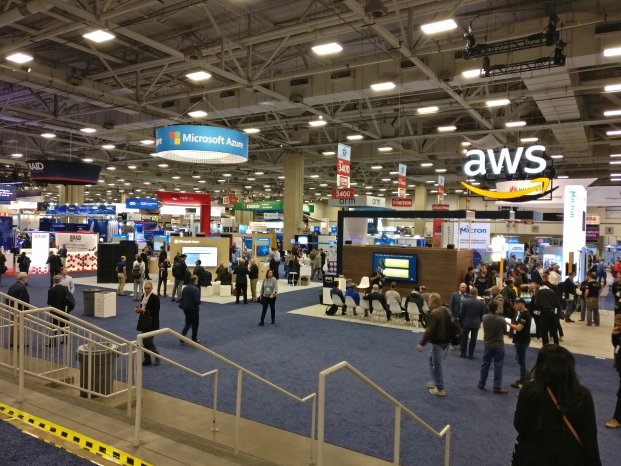One specific case on display was the SuperMUC-NG at Leibniz Supercomputing Centre. The brand-new high-performance computer, which has just entered the TOP500 list at number 8, is to be cooled with a Fahrenheit adsorption chiller with a total capacity of 1.7 MW. In addition, Fahrenheit presented the next evolution of adsorption cooling by showcasing the concept of a rack-integrated adsorption chiller, which enables the compute rack to remain temperature neutral and to cool itself.
Fahrenheit also illustrated the physical principle behind the technology – which uses heat instead of electricity for cooling, and which requires only water as a coolant – by displaying a physical experiment which turns water into ice in a matter of seconds, without requiring any energy input.
In the words of Matthias Hoene, CEO of Fahrenheit: “It has been an exciting SC18 for us, and customer feedback was overwhelmingly positive. As the power density in data centers keep increasing, it is clear that there is a growing need for energy efficient cooling innovations. We are grateful to Lenovo for the opportunity to co-present with them.”
Fahrenheit adsorption cooling offers enormous potential for energy savings in data centers by using the CPUs’ heat to drive chillers for energy efficient and environmentally friendly cooling. Cooling data centers with server heat saves electricity, dispenses with synthetic refrigerants, and contributes to protecting the environment.
SC18, the International Conference for High Performance Computing, took place in Dallas, USA, from November 11-16, 2018, bringing together supercomputing experts from around the world.

